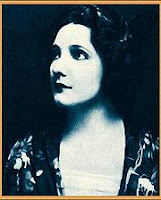Hello, spring intern Chelsea speaking. This is the second in a series of blog posts introducing Japanese fiction to English speaking readers in the hopes that we become more aware of Japan's place on the international literature stage. The previous post can be found here.
Japanese modern literature is weird, and that’s a good thing.Weirdness comes in many forms, and in the case of Japanese fiction, levels of strangeness vary from author to author. The weirdness of Japanese fiction ranges from subtle absurdity to absolute craziness and insanity.
I am most fascinated by how a lot of this weirdness is presented realistically in real world settings, played off as normal life despite having qualities that are undeniably weird.
Perhaps the best example of 'real-life weirdness' in modern Japanese fiction is found in the realistic yet fantastical works of Murakami Haruki, such as
A Wild Sheep Chase or
The Wind-up Bird Chronicle, in which seemingly normal protagonists meet characters with weird traits and quirks (for example, a girl whose job is to survey the hair of middle aged men for a wig company, or a man who hides among sheep while wearing their skin), and go on adventures that aren't really adventures in a traditional sense, as they don't have that sense of urgency that usually makes adventures exciting. This weirdness is narrated along with actions that are painfully normal, like cooking pasta for lunch and going to the cleaners, and this combination of abnormal and normal life makes it hard to judge whether the novel is meant to be realistic or not.

As for the completely insane, Murakami Ryu's
Coin Locker Babies comes to mind. Aside from the weird premise of following the lives of two boys who were abandoned by their mothers in train station coin lockers after birth, this book is full of crazy happenings, with a love interest so weird that she has an alligator for a pet, self tongue-cutting, pregnant-girlfriend stabbing, and a mysterious, fictional destructive substance that is eventually used to wipe out the entire city of Tokyo. The weirdness is very explicit, obvious, and out of this world, yet deceptively believable because it IS set in this world, in modern Japan.
Abe Kobo wrote
The Box Man, which is a novel written from the viewpoint of a

man who essentially lives his life wearing a box, with holes for eyes, feet, and his mouth. If this isn't weird enough, the appearance of a few more box men and the ambiguous way the story is told (where you're not sure which box man is which, and squabbles regarding people wanting the box and wanting to become box men themselves abound) makes it weird as well. Kobo also wrote
The Woman in the Dunes, in which sand becomes as much of a character as the human characters, strangely enough. Many people consider Abe Kobo to be Japan’s Franz Kafka, and that is because the weirdness of their works brings their stories to life.
Weirdness, as I mentioned in my previous post, is a good thing for novels. It makes stories interesting. It gives them a mysterious quality and an element of surprise, because you never know what to expect or just how weird it will get.
Here's a question for you: Have you read any books that were so weird that they're good?_________________________
In light of the current situation in Japan, I encourage people who wish to lend a hand but don't know what to do to visit the following websites, all of which are contributing to help those suffering from the earthquakes, tsunami, and the aftereffects here and here.


















 MARS: PACKING DO'S AND DON'TS
MARS: PACKING DO'S AND DON'TS 







 For Book store
For Book store